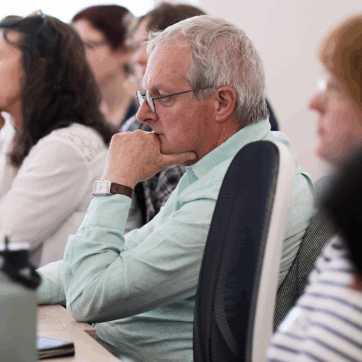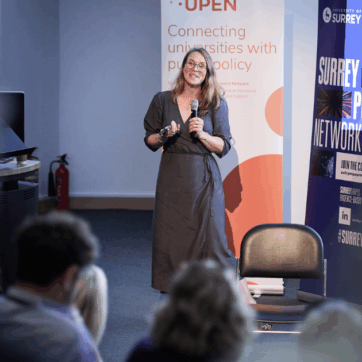When we discussed some early thinking around UPEN’s sustainability plans at our recent members meeting, what was particularly noteworthy was that although the value of UPEN to its members was clearly expressed, it was apparent that benefits often flowed more clearly to the individual member than to their institution. As we consider our long-term sustainability plan, this is something – along with the question of ‘who or what is a member of UPEN’ – that we will keep firmly in mind. As a prelude to a much wider and deeper piece of work on network sustainability, we asked members a simple question; what would they be minded to pay for, and how much could/would they pay? Currently UPEN relies on voluntary subscriptions, and whilst our recent Research England funding has significantly increased UPEN’s capacity to deliver specific programmes of activity, within the bid document we make a specific promise, that:
“Learning from the project will inform the blueprint for UPEN’s future support for academic-policy engagement. We will focus on achieving the optimum business and organisational model for UPEN through consideration of which academic-policy engagement approaches can be scaled, embedded and sustained. In doing this, we will market-test a range of revenue generation, membership subscription and service delivery models.”
Over the coming months, UPEN will be developing a renewed membership engagement strategy, supplemented via a series of regional listening exercises; to ensure that our governance model is strong and sustainable; that our members continue to derive individual and collective benefits from UPEN; and we are able maximise engagement across UPEN’s network within our newly funded programmes. For the first time we will also have the equivalent of a full-time role providing dedicated support for member engagement, alongside staff time allocated for project delivery and sustainability planning.
The current UPEN operating model relies on member donations to support our events programme, annual conference, newsletter and network engagement capacity. Last year (2023-24), we received £46,450 from 21 University members which was crucial for sustaining core activities. Whatever our future model, we anticipate it will continue to include some form of member contribution to running costs. In surveying this at conference – accepting that HEIs who currently contribute are likely to be overrepresented – responses to the question of what is ‘reasonable’ ranged from £800-£3,000 for access to current brokerage, communications and training/mentoring functions. Respondents noted the value of UPEN’s connectivity, ‘a shortcut to trusted policy connections’, and ability to amplify research outputs, ‘a soapbox to share examples of impactful work’.
It was notable that those at the lower end of the range also mentioned that they would be willing to pay for additional activities, over and above a core ‘subscription’. Currently, our events and subcommittees are open to everyone, but unsurprisingly there is a correlation between those who are more active and those who currently contribute. Whilst there was some interest in individual memberships (£100-£400), and a willingness to pay for conference attendance, there was also a clear steer that the main issue for institutional leads was demonstrating current and ongoing value to/for their institution. A model where members paid in but then received outputs up to a certain value (e.g. places at events, roles within UPEN’s structure, or brokerage/advice) seemed, at least in conversations with members, to be something we should explore further.
Given the current financial state of the Higher Education sector, members’ clarity on the difficulties in justifying discretionary spend that was not clearly tied to outcomes was unsurprising. However, there was an acceptance that a number of UPEN services could be reasonably costed at market rate, including but not limited to: training (e.g. around knowledge mobilisation), bespoke consultation, leadership support, and convening regional policy engagement fora. Within this, there were views that the offer could be both modular (where institutions could pick from a menu of options), and scalable (potentially reducing cost on a case-by-case basis). The general view was that ongoing support at current levels is only likely to be available if QR Policy Support Fund continues, so there is a clear driver to move towards a more clearly focussed, targeted, and signposted offer. As one member argued, it can often be “difficult to understand the benefits, and how we can engage and get the most benefits from our membership”, and as another noted this has to work for a differentiated set of members: “the challenge is how to engage UPEN members who are more ‘advanced’ in their thinking and development institutionally on policy engagement – will they want to pay if they feel like they are the ones giving their ‘expertise’ and aren’t needing to learn from others?”
Whilst this is an unscientific snapshot that confirms many of our suspicions, we intend to follow this up with some more detailed work that attunes members to the question of UPEN’s ongoing sustainability. All options are still under review, but three principles are clear.
- A commitment to openness
We are valued by our members for our breadth, openness and convening power, and this would be damaged by an exclusive membership model. Put simply, we would lose members, and by extension traction, if a rigid subscription fee was mandatory. It is likely that UPEN will always be built around a ‘free’ offer, with the caveat that the resourcing for this would have to come from somewhere.
- Testing services with the UPEN community
We need to do more work testing products and services with our members. Accordingly, we have designed the Research England funded programmes to do just this, and have already received some excellent ideas from members that are broadly consistent with the direction of travel, including: strengthening brokerage infrastructure; facilitating sharing of research to policymakers; access to a network of UPEN mentors; bi-annual regional policy insights symposia; and co-authoring on published reports on specific areas of expertise.
- Strengthening HEI capacity
Whatever model we eventually alight on, it will need to mesh with a rapidly changing (and in some cases shrinking) capacity within the sector. On the one hand, our mantra will always be to ‘help institutions help themselves’, however there may be a role in providing substantive structure where it is depleted or lacking. As one member outlined, “I would be interested in UPEN providing some of the more generic policy-related engagement functions as well as being keen to contribute to national brokerage services if they could be demonstrated as beneficial to all members.” The key to this is probably to obtain broad agreement on such initiatives, as well as being attuned to the potential for regional divergence.
We look forward to engaging with membership on these issues over the coming months, and we will be formally launching our funding schemes in the next academic year. If you want to discuss our sustainability plans or find out more about any of UPEN’s forthcoming programme activities, we’d love to hear from you. Please contact us at: hello@upen.ac.uk.


